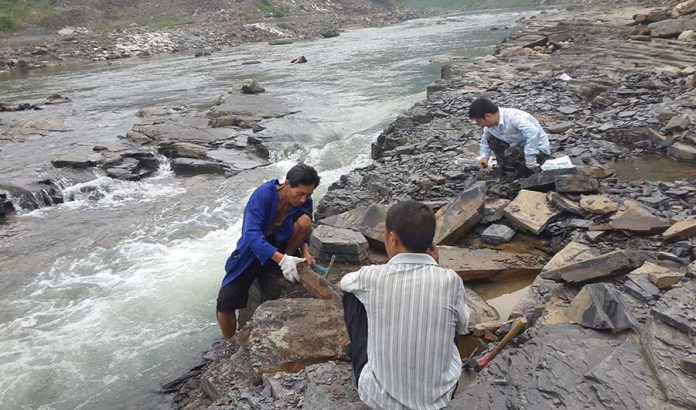Palaeontologists consider these fossils to be estimated about 518 million years old and more than half of them have not been discovered before. The fossils are particularly unusual because they are of soft-bodied creatures like jellyfish and worms that can hardly get fossilized. But it seems that they were rapidly buried by mudflows and sediment which allowed their soft body tissues such as skin, eyes, and internal organs to be well preserved.
The fossils are considered to be from the Cambrian period that began 541 million years ago. They were collected near Danshui river in Hubei province and are collectively known as Qingjiang biota and include more than 20,000 specimens out of which a total of 4,351 have been analyzed so far, including worms, sea anemones, algae, and jellyfish. The research team is now documenting the remaining specimens and conducting more drilling in the region to learn more about the ancient local ecosystem and the fossilization process.
This find is one of the most significant in the last 100 years according to Prof Allison Daley, a paleontologist not involved in the search, that stated: “It blew my mind – as a paleontologist I never thought I’d get to witness the discovery of such an incredible site. For the first time we’re seeing preservation of jellyfish – you think of jellyfish today, they’re so soft-bodied, so delicate, but they’re preserved unbelievably well at this site.”
The newly discovered fossils will become “a very important source in the study of the early origins of creatures”, says Prof Xingliang Zhang, one of the fieldwork leaders from China’s Northwest University. He also added that he looks forward to studying “all these new species – I’m always excited when we get something new”. Prof Robert Gaines who is a geologist who also took part in the study said:
“Biotic diversity today is something that we take for granted, even though there are indications that extinction rates are sharply increasing. Yet most of the major animal lineages were established in a singular event in the history of life, the Cambrian explosion, the likes of which have never been seen before or after. It also reminds us of our deep kinship to all living animals.”
Source: bbc.com










